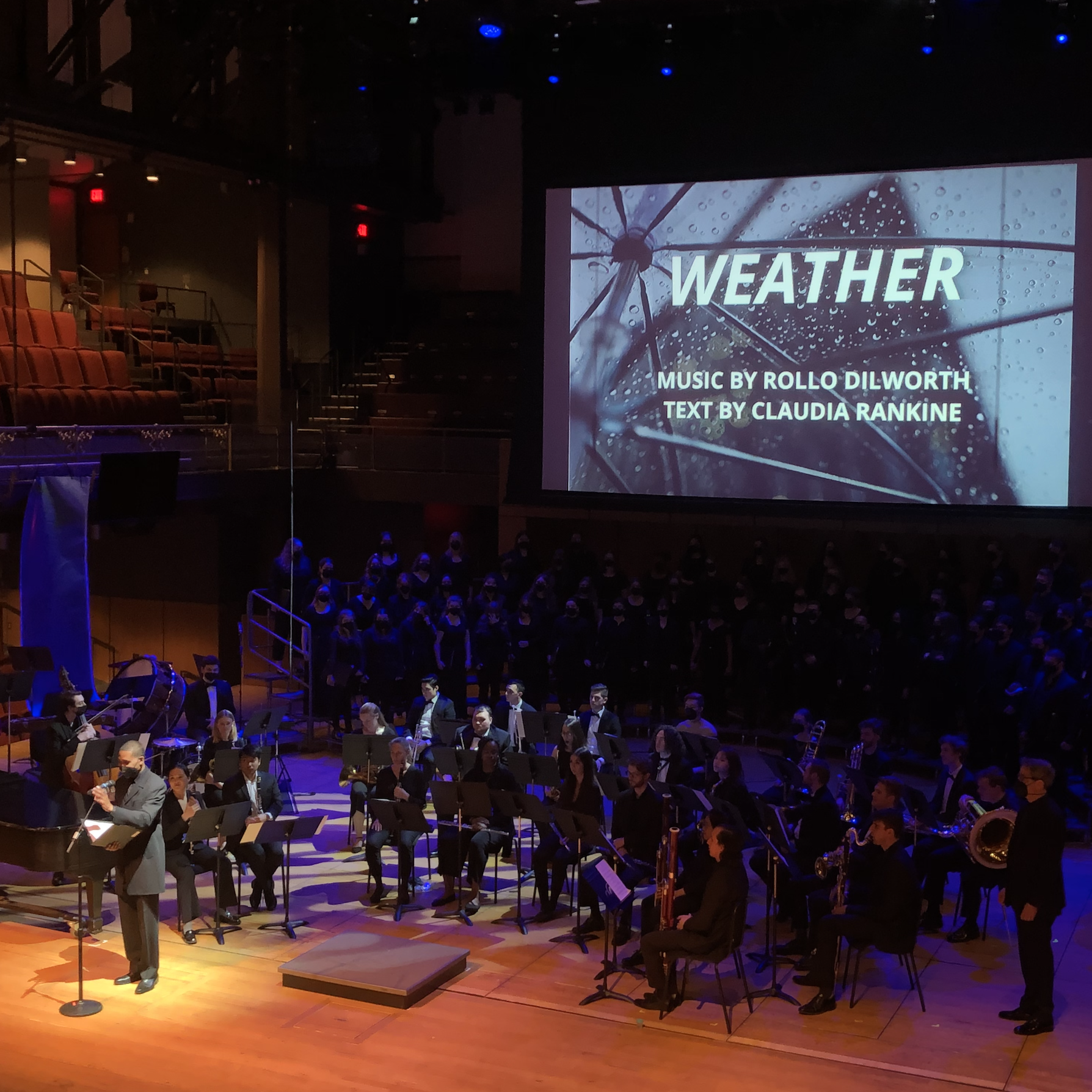Through a moving and impactful performance by Temple University students, the piece “Weather” stays in one’s mind long after the final note is played.
Composed by Dr. Rollo Dilworth, Vice Dean at Boyer College of Music and Dance at Temple University and board member at The Presser Foundation, “Weather” is based on a poem of the same name by award-winning poet and scholar Claudia Rankine of Yale University. The poem is included below:
On a scrap of paper in the archive is written
I have forgotten my umbrella. Turns out
in a pandemic everyone, not just the philosopher,
is without. We scramble in the drought of information
held back by inside traders. Drop by drop. Face
covering? No, yes. Social distancing? Six feet
under for underlying conditions. Black.
Just us and the blues kneeling on a neck
with the full weight of a man in blue.
Eight minutes and forty-six seconds.
In extremis, I can’t breathe gives way
to asphyxiation, to giving up this world,
and then mama, called to, a call
to protest, fire, glass, say their names, say
their names, white silence equals violence,
the violence of again, a militarized police
force teargassing, bullets ricochet, and civil
unrest taking it, burning it down. Whatever
contracts keep us social compel us now
to disorder the disorder. Peace. We’re out
to repair the future. There’s an umbrella
by the door, not for yesterday but for the weather
that’s here. I say weather but I mean
a form of governing that deals out death
and names it living. I say weather but I mean
a November that won’t be held off. This time
nothing, no one forgotten. We are here for the storm
that’s storming because what’s taken matters.
During the pre-concert lecture, Dr. Dilworth explained how he intertwined themes from the African American spiritual “Stand the Storm,” as well as references to George Floyd, whose murder is discussed in the poem. The piece is organized into six distinct sections – The Meditation, The Marginalization, the Memorial, the Meltdown, the March, and The Mobilization; each respective section’s musical patterns, rhythms, and sounds correspond with the words from the poem. Details were incorporated into the various sections, including using the notes G&F, numbers correlated to Mr. Floyd’s age, the number of times he said, “I can’t breathe,” the amount of time the officer kept his knee on Mr. Floyd’s neck; blues and gospel music; call and response names of Black Americans who have been murdered by the police; and marching.
Overall, “Weather” invites everyone to not only listen, but to also participate and ponder about how they can engage to make the world a better place. It demonstrates the vital role of the arts. To quote Dr. Dilworth, “historically, the arts have always fulfilled the dual roles of responding to change while at the same time creating change… everybody has a role to play in building and sustaining communities that are fair and just for all.”
Indeed, the piece inspires the audience to do something – as Maya Angelou says and Dr. Dilworth quoted, “to know better, to do better, to take action, to become agents of social justice and social change.”








